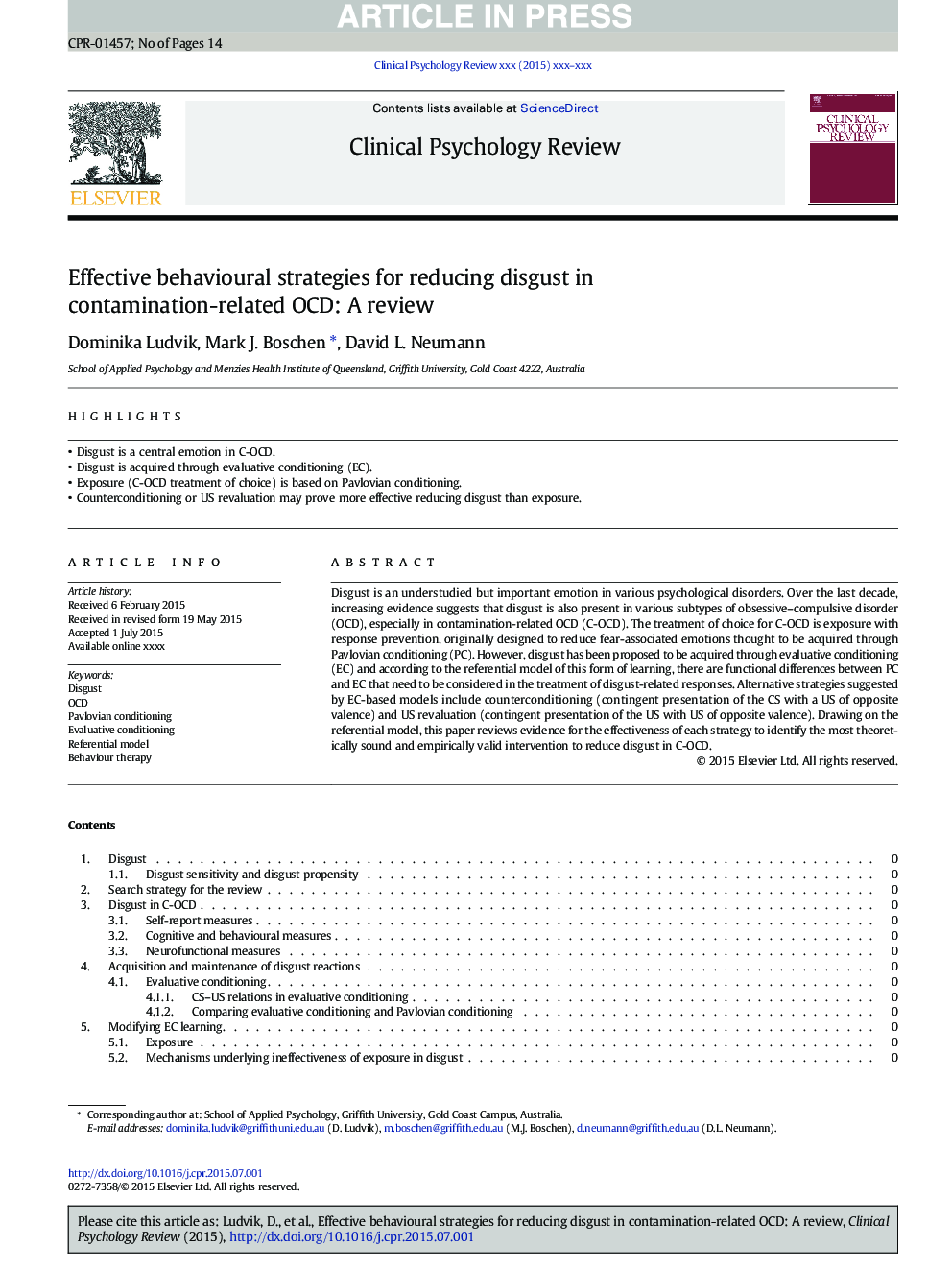| Article ID | Journal | Published Year | Pages | File Type |
|---|---|---|---|---|
| 7263973 | Clinical Psychology Review | 2015 | 14 Pages |
Abstract
Disgust is an understudied but important emotion in various psychological disorders. Over the last decade, increasing evidence suggests that disgust is also present in various subtypes of obsessive-compulsive disorder (OCD), especially in contamination-related OCD (C-OCD). The treatment of choice for C-OCD is exposure with response prevention, originally designed to reduce fear-associated emotions thought to be acquired through Pavlovian conditioning (PC). However, disgust has been proposed to be acquired through evaluative conditioning (EC) and according to the referential model of this form of learning, there are functional differences between PC and EC that need to be considered in the treatment of disgust-related responses. Alternative strategies suggested by EC-based models include counterconditioning (contingent presentation of the CS with a US of opposite valence) and US revaluation (contingent presentation of the US with US of opposite valence). Drawing on the referential model, this paper reviews evidence for the effectiveness of each strategy to identify the most theoretically sound and empirically valid intervention to reduce disgust in C-OCD.
Related Topics
Health Sciences
Medicine and Dentistry
Psychiatry and Mental Health
Authors
Dominika Ludvik, Mark J. Boschen, David L. Neumann,
